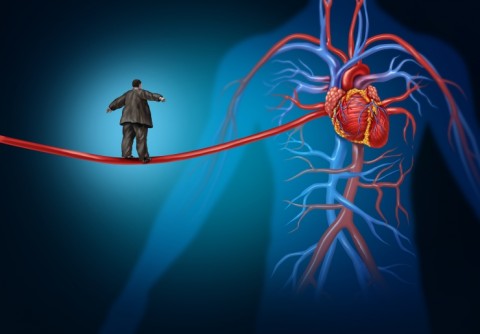DrCarney.com Blog
Cardiovascular Disease Risk Increased by Red Meat
Consuming animal-based foods containing L-carnitine promotes the development of cardiovascular diseases, such as atherosclerosis, stroke, and myocardial infarction. L-carnitine is a nutrient that helps to transport fatty acids to the mitochondria, the energy-producing furnaces in the cells, for use as fuel. However, the human body can also produce L-carnitine from the amino acids lysine and methionine, which are also available from plant-based sources. Therefore consuming animal products for L-carnitine is not essential. L-carnitine does not appear to affect cardiovascular disease risk unless coming from animal sources. Evidence from several human and animal studies have shown that high intake of animal-based dietary L-carnitine increases the risk of cardiovascular disease.
Show Me the Science
Researchers from the United States found out that high dietary exposure to animal-based L-carnitine boosts the likelihood of developing cardiovascular diseases. In this study, the team of investigators measured serum concentrations of L-carnitine in 2 groups: humans undergoing cardiac evaluation and mice fed with either choline, carnitine, or trimethylamine-N-oxide (TMAO) supplements. At the end of the study, researchers discovered that human subjects and mice with high dietary intake of L-carnitine and circulating levels of TMAO had greater risk of developing cardiovascular diseases, such as atherosclerosis, stroke, and myocardial infarction.
Meat is a rich source of cholesterol, saturated fats, and L-carnitine, all of which play a significant role in the development of cardiovascular disease. Bacteria residing in the human gut play a key role in the process by which animal-based dietary L-carnitine is converted by the GI system organs to the compound trimethylamine-N-oxide (TMAO). Unlike animal-based dietary L-carnitine, the endogenous L-carnitine (synthesized in human cells from plant-sourced amino acids lysine and methionine) does not pass through the digestive tract, so gut bacteria do not act on endogenous L-carnitine made from plants. Because the intestinal bacteria do not convert plant-based endogenous L-carnitine to TMA, there will be no dangerous TMAO formed in the liver from human-produced (endogenous) L-carnitine made from amino acids available from plant sources. Therefore, L-carnitine made from plant-derived amino acids does not increase cardiovascular disease risk.
Which Foods Contain L-carnitine?
Animal-based foods including red meat, fish, poultry, dairy products, pork and sea foods, are, unfortunately, excellent sources of L-carnitine. In general, the redder the meat, the higher its carnitine content. Deciding whether to eat or avoid red meat is a personal choice (although the animals have no choice about being eaten); however, regular intake of meat in the diet is not a healthy choice. Habitual consumption of diets without red meat and other animal products can help to cut down an individual's risk of developing cardiovascular diseases, such as atherosclerosis, stroke, and myocardial infarction.
Additional Information:
(1) Intestinal microbiota metabolism of L-Carnitine, a nutrient in red meat, promotes atherosclerosis.
(2) Carnitine Metabolism to Trimethylamine by an Unusual Rieske-type Oxygenase From Human Microbiota
(3) Red Meat Linked to Heart Disease
(4) Red Meat, Gut Bacteria and Heart Disease
Scroll Down Page to Leave Comments

Want to Make Lifestyle Changes?
Not sure how to start? The good news is that Help is Only a Click Away! We invite you to join Dr. Carney's Helpful Sharing Community.
Preview the "Best Blood Pressure Plan" Trailer
More Health, Less Medicine: Why take drugs for life to lower blood pressure? Resolve blood pressures naturally, with less medication! Many of Dr. Carney's patients normalize to need no medicine at all, using science from her Starch-Smart® System. Discover which foods raise blood pressure, narrow the arteries, and damage those all-important endothelial cells. Dr. Carney teaches the best ways to dilate your arteries today, and ditch those meds for good.
When you subscribe to the blog, we will send you an e-mail when there are new updates on the site so you wouldn't miss them.




